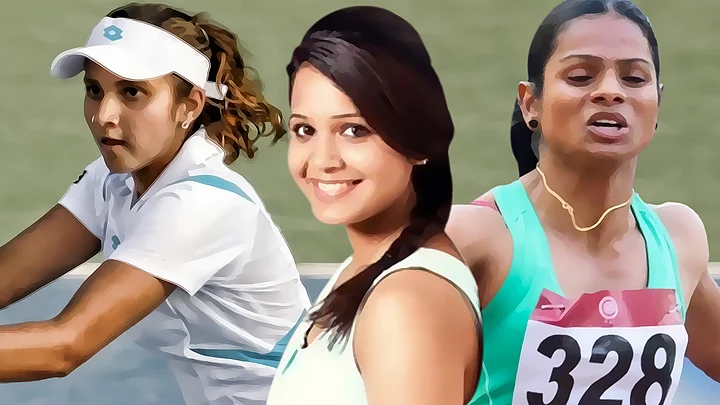A visibly riled Sania Mirza on Thursday told Rajdeep Sardesai that motherhood is not equivalent to success for a woman.
Sardesai’s question about when Mirza plans to “settle down” was an unfortunate reiteration of how the burden of motherhood comes with being a female for many, which is only the tip of the humungous (read: sexist) iceberg that women deal with.
This comes a week after Tennis star Serena Williams clinched the Grand Slam title along with winning our hearts for rising above social media trends that body shamed her. Twitter was flooded with comments on Williams’ body, some of them asking her to cover up her nipples, for they were “distracting.”
While Sania and Serena have inspired many with their admirable grit and views on sexism, there are other Indian athletes who have fought the same demons, and emerged victorious.
Dipika Pallikal: The Fight for Equal Pay
Caught between blatant sexism in popular culture and a sport largely considered masculine, star squash player Dipika Pallikal has been championing the cause of equal pay in the country, much like Williams internationally.
Pallikal boycotted the Senior National Championship in 2011, demanding equal prize money for both men and women.
Her stand was vindicated in 2016, when the organisers decided to have equal prize money. That’s when the world number 18 decided to return to the court.
Williams too has been vocal about her views on equal pay in the sport.
Jwala Gutta, Dutee Chand and Body Shaming
“People say I am not fit for sport, I am only fit for movies,” badminton player Jwala Gutta said in an chatty talk with Huffington Post.
Gutta’s detractors have called her a ‘man’, hailed her as the ‘hottest pin-up girl in Indian sport’ and criticised her for ‘her extended adolescence.’
Much like Serena, who has been called “savage” and a “gorilla,” Gutta gave it back to her critics:
At some point, you have to stop caring about what is said about you and believe in yourself. I love fashion and I don’t step out dressed shabbily. But why is that a basis for accusing me of not being focused on my game? I can’t train 24x7, can I?
Along with Gutta, Indian sprinter Dutee Chand has faced the brunt of body shaming by virtue of having an athletic physique and consequently being addressed a man.
It got worse when in 2014, she was barred from competing as her “natural levels of testosterone” exceeded guidelines for female athletes.
Challenging the ban, Dutee approached the Court of Arbitration for Sport, which then gave a landmark verdict:
It ruled that a common factor in distinguishing the sexes – the level of natural testosterone in an athlete’s body – is insufficient to bar some women from competing against females.
These women probably fight more battles off the court. They have to deal with a gendered vocabulary, a critical gaze at their physiques and stereotypes that can be nauseating. And yet, when they stand up against it all, it gives us something to celebrate.
And Sania Mirza, Of Course
Yes, this happened.
With Serena, it’s not only about her nipples. She has been heavily critiqued, sometimes cruelly called out, for her choice of dresses, both on and off the court.
For Shah Rukh Khan, women’s doubles world number one Sania Mirza is the “queen of racket.”
Not so much, for some desi people.
In 2005, a fatwa was issued against her, asking her to stop “indecent” (read: a skirt) clothes. It said she should wear tunics and headscarves or else she will be barred from playing.
Yes, because wearing headscarves will suddenly engulf the woman in a veil of ‘decency.’
Her brush with fatwas reached a cathartic peak when her relationship with Pakistani player Shoaib Malik earned her the title of “Pakistan’s daughter-in-law.”
Two fatwas: one for possible pre-marital sex, and one for living together were also put in place against her.
In an interview thereafter, she got emotional discussing the shaming she had been subjected to.
But Mirza wasn’t one to bow down. She got back, this time with words, not her forehand – “Well-behaved girls rarely make history,” she said. Since then, this line has meant more than a mere slogan for feminism. It’s been a symbolic, powerful comment from a non-apologist woman.
(At The Quint, we question everything. Play an active role in shaping our journalism by becoming a member today.)
